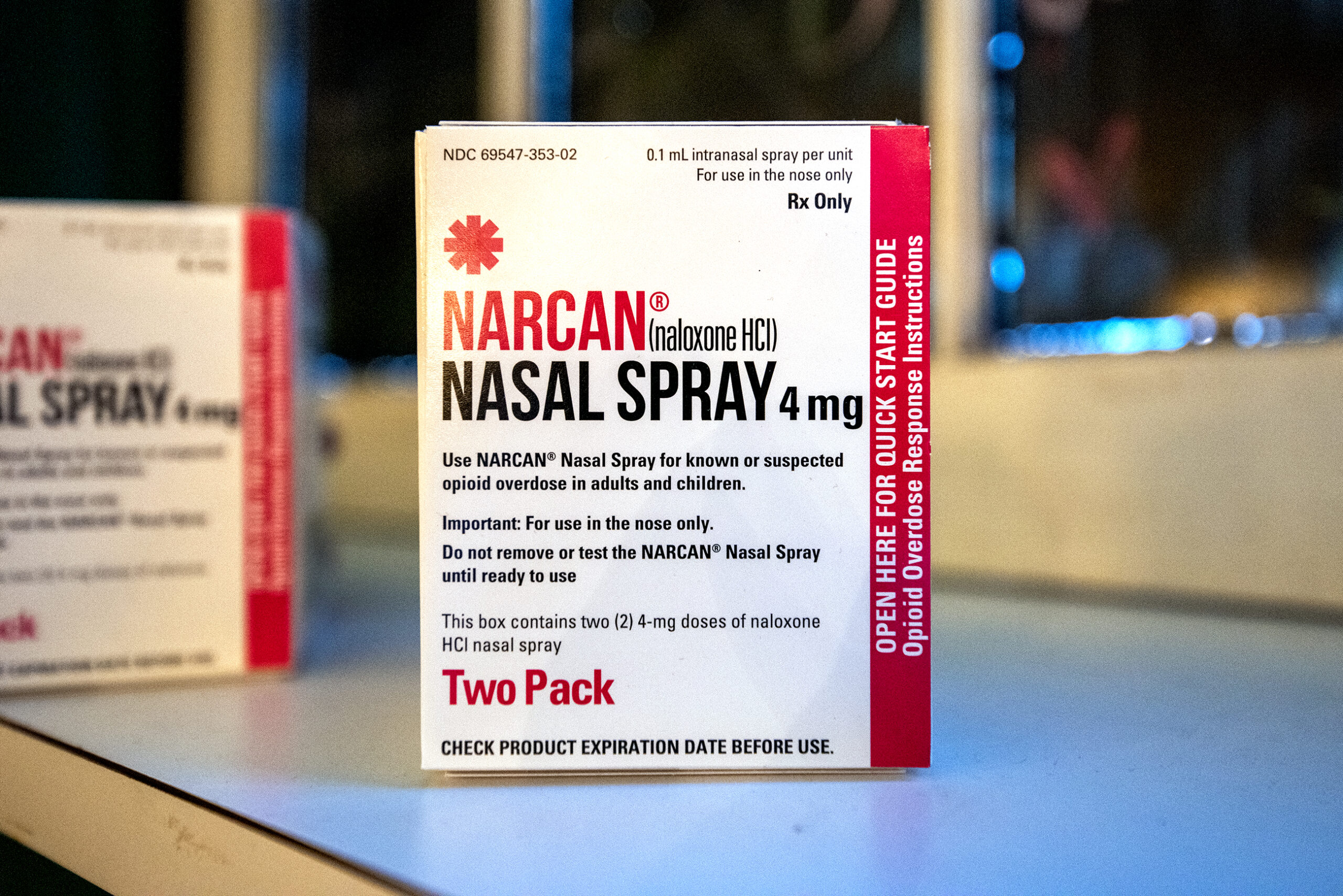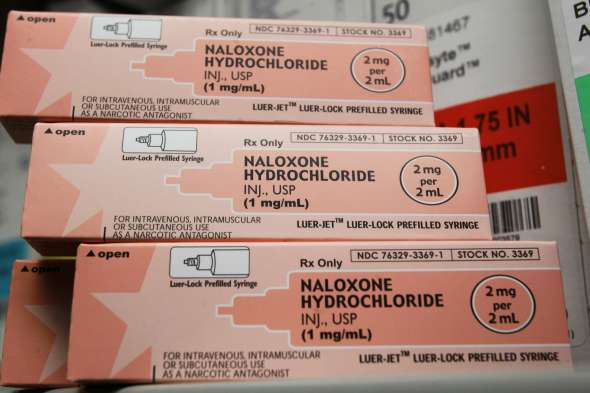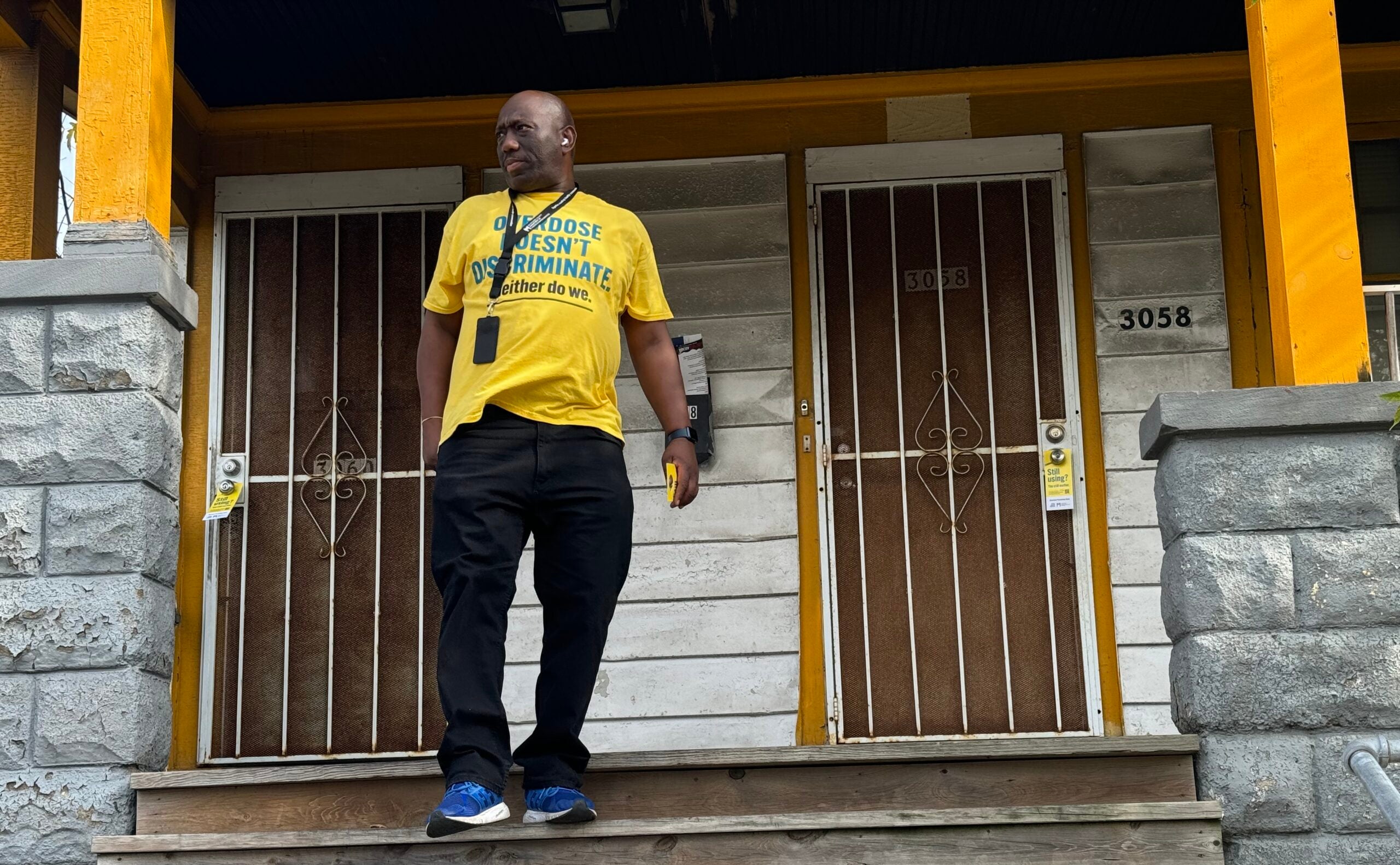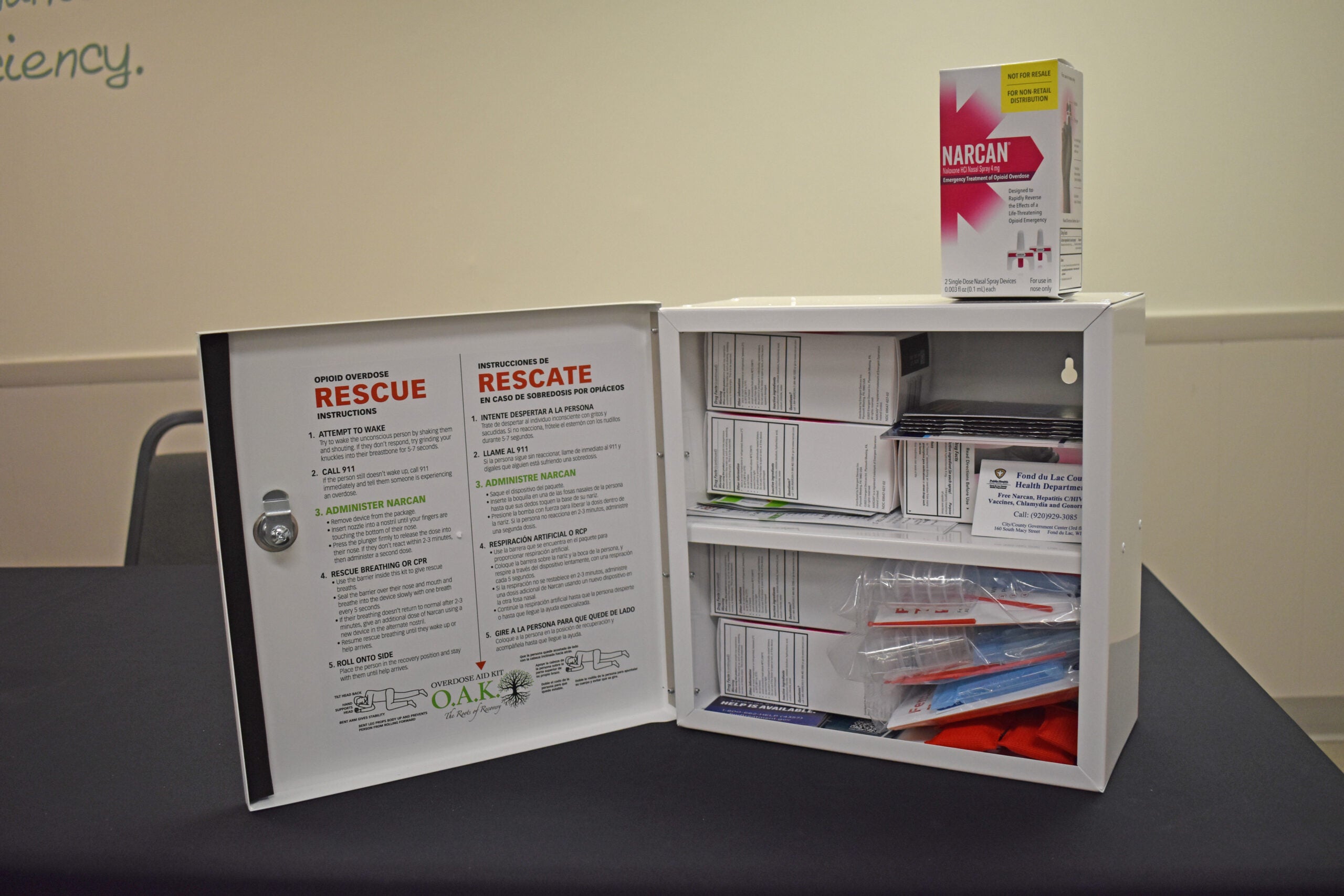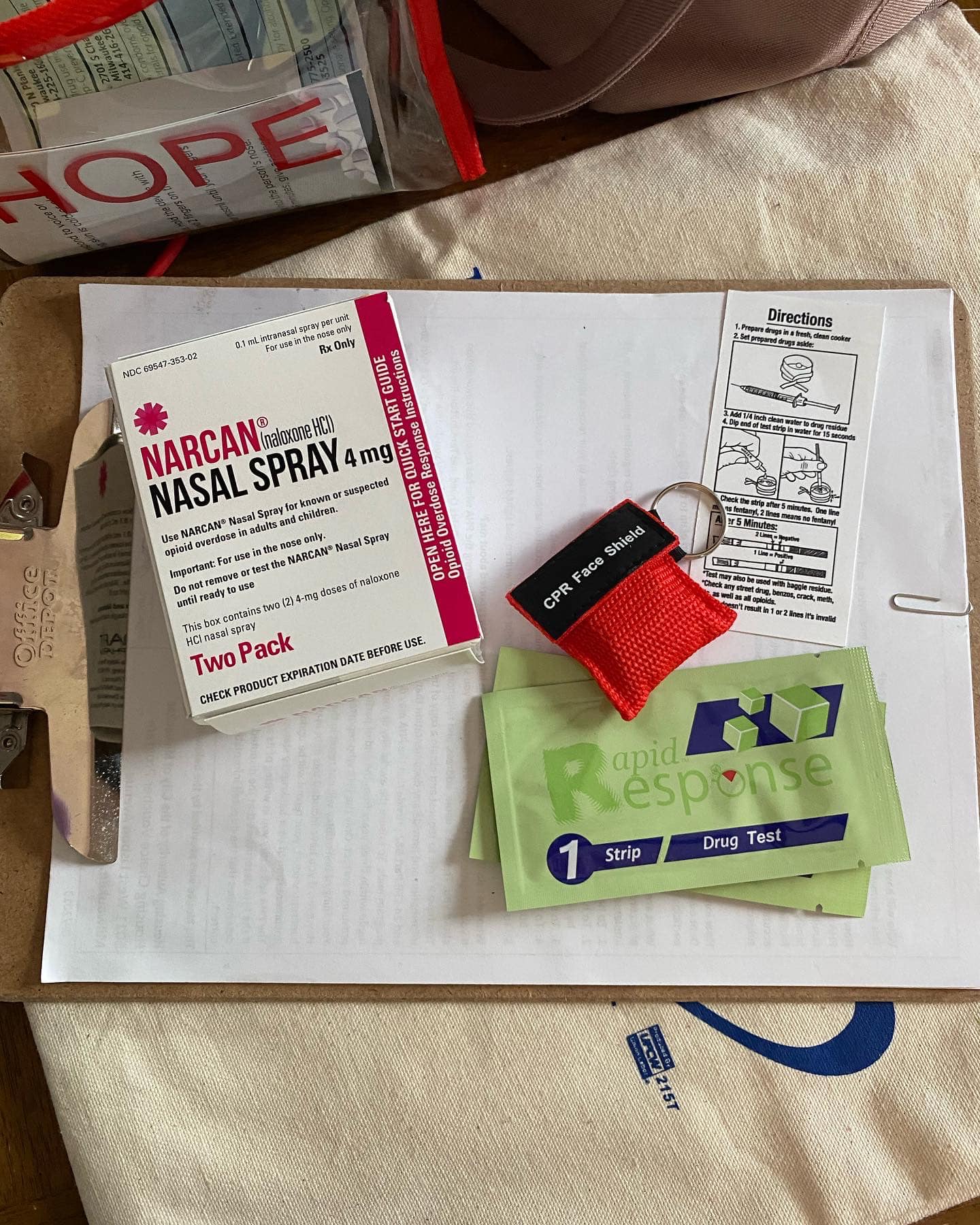Public health providers across Wisconsin are turning to vending machines to help prevent fatal opioid overdoses.
The state’s health department is distributing nearly $1 million to 15 community centers, treatment providers and public health agencies as part of the latest round of grants through the federal Substance Abuse Prevention and Treatment Block Grant.
The local organizations will use the money to stock indoor and outdoor vending machines with the life-saving opioid overdose reversal drug Narcan and with strips to test for fentanyl. Both will be available for free.
Stay informed on the latest news
Sign up for WPR’s email newsletter.
Paul Krupski, who leads opiod abuse initiatives at the Wisconsin Department of Health Services, said some people may be more willing to get help via vending machine.
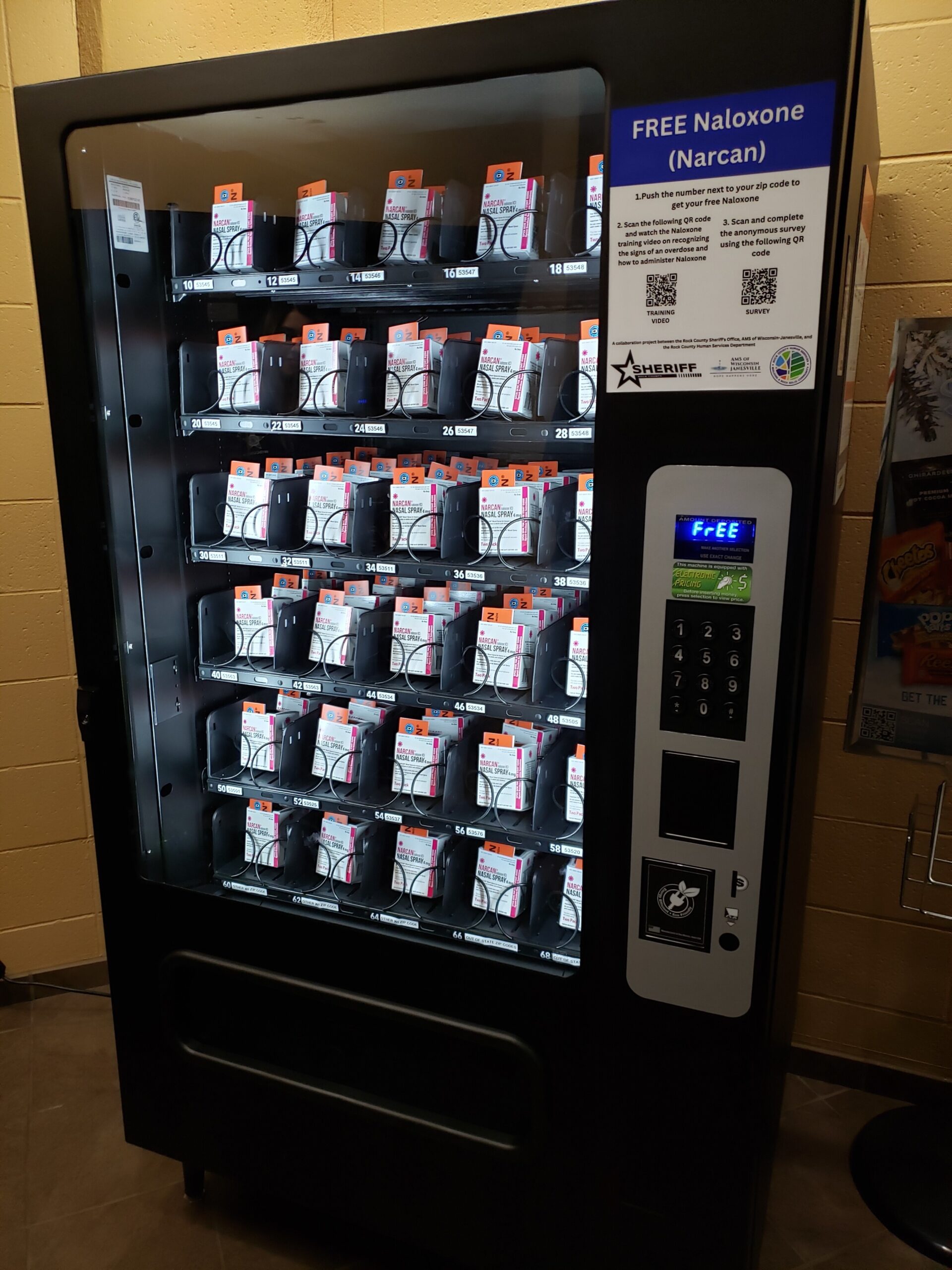
“It’s a discreet and confidential and stigma-free opportunity,” he said. “It removes that barrier and allows somebody to access these tools right there, anytime that they want them immediately, and not have to go through anybody to get it.”
Earlier this year, Wisconsin announced grants awarded to 26 organizations across the state for public vending machines stocked with Narcan and fentanyl test strips. That round of funding came from nearly $2 million from Wisconsin’s 2022 share of the national settlement with opioid companies.
Provisional data shows 1,410 Wisconsinites died of opioid overdoses last year, a slight decrease compared to the year before. The state’s 1,427 opioid overdoses in 2021 set a record high on top of a previous record high of 1,227 deaths in 2020. Health officials say the vast majority of Wisconsin’s opioid deaths involved the powerful synthetic painkiller fentanyl.
Krupski said he’s encouraged to see that opioid deaths seem to be remaining relatively constant, instead of continuing to increase as in years before.
“At least the overall number staying level is a positive sign that … all the work, including these public health vending machines, that we’re supporting around the state are making a difference and helping save lives,” he said. “Hopefully, then, in the coming years we can begin to see decreases.”
Also this week, federal officials highlighted $1 million in grants awarded to Wisconsin providers in rural communities for opioid risk prevention. That includes funding for the Marshfield Clinic to prevent and respond to opioid overdoses as well as funding for the Family Health Center of Marshfield and to the Menominee Indian Tribe of Wisconsin to prevent and address neonatal opioid exposure.
Health Resources Services Administrator Carole Johnson said the Rural Communities Opioid Response Program is aimed at places that may be overlooked under population-based funding formulas.
“We really wanted to target dollars to rural communities, who often face challenges in accessing treatment in recruiting providers, in doing the types of things that we know can help get people on a path to recovery,” Johnson said in an interview with Wisconsin Public Radio.
Johnson visited the Madison area Thursday along with first lady Jill Biden to promote cancer screenings amid Democratic President Joe Biden’s push for reelection in 2024.
How to get help
If you are struggling with addiction, call 211 or the crisis hotline at 988 to be connected with resources.
The opioid reversal drug Narcan can be purchased at pharmacies without a prescription. It’s also available for free through Wisconsin’s Narcan Direct program. Click here for a map of where it’s available in Wisconsin.
Naloxone, the generic form of Narcan, can be administered via injection or a nasal spray.
Wisconsin Public Radio, © Copyright 2025, Board of Regents of the University of Wisconsin System and Wisconsin Educational Communications Board.
